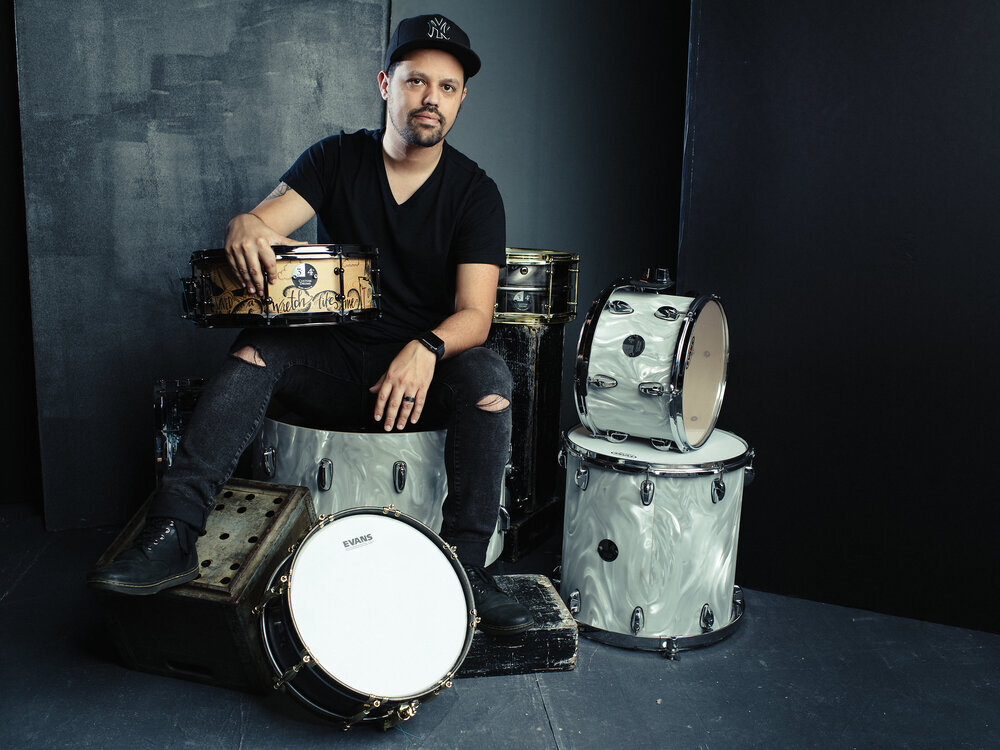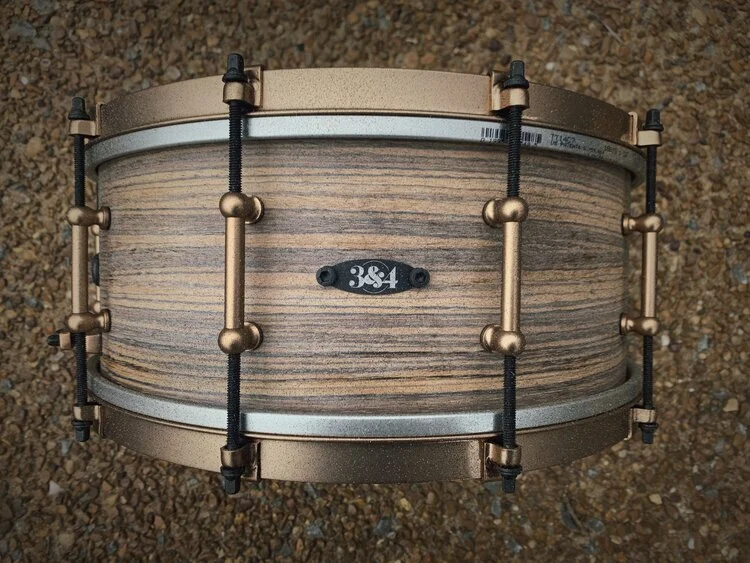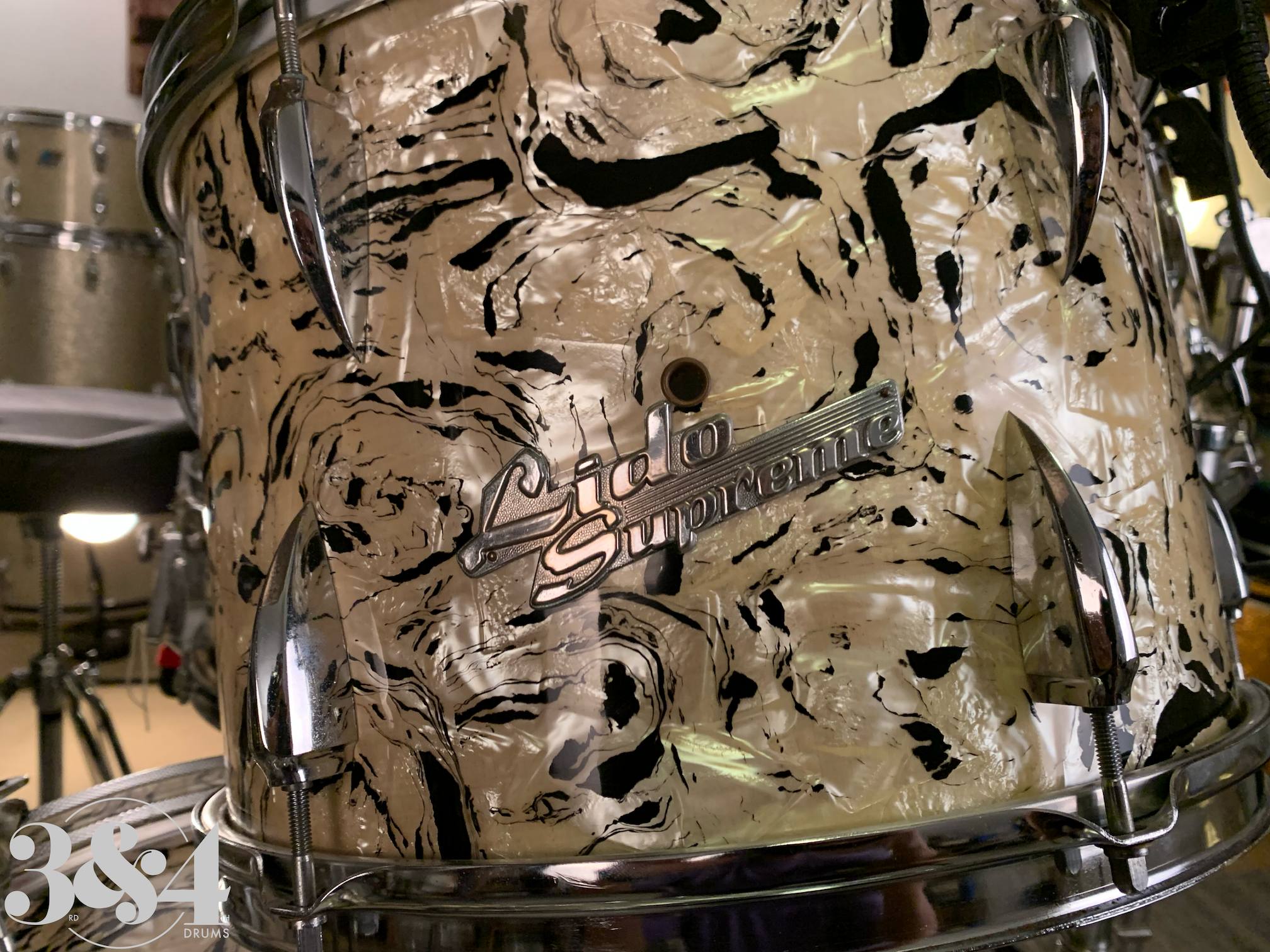
Edwin Rivera III Edwin Rivera III is the owner of 3rd & 4th Drums in Thompson's Station, TN, specializing in drum rentals for the greater Nashville area as well as crafting drums. He's currently the drum tech for Leif Skartland, drummer for CCM artist Jeremy Camp. Edwin does remote drum sessions from his home studio where he also drum engineers for many Nashville-based drummers.
These two snares are made out of the same constructed 6-ply shell - walnut (1) / ash (4) / walnut (1). Walnut is known for its classic and attractive characteristics for tone and visual aesthetic. Sonically, walnut’s tonal colors can be characterized as having a big and dark low end to it. On the other side of the coin, ash is known for its warmer highs and mids compared to maple. Having ash as the core and walnut as your outer plies allow you to obtain a lot of low end in the higher tuning range while not sounding “choked”. These drums will also have a deep and darker low end than maple. Both snares have a slight round over on the outer edge with a 45-degree inner cut. This allows the snare to give you both body and lively overtones.
“This is a really unique sounding snare! The resonance seems to have a lot of warm complexity to it. It’s very crisp and sensitive. Playing light quick ghost notes and buzz rolls felt super comfortable and articulate. It really surprised me when I moved it down to a lower open tuning - this whole other body and fullness came out of the drum... huge! Overall, this is just a beautiful instrument - sonically and aesthetically” - Kris Redus
In the 1969 catalogue the "President” kit was the only one to show a rectangle badge with the words president on them. They also said Pearl and Japan. These President kits were built till 1973. They still offered great looking pearl wraps such as this Tiger Eye white pearl, marine pearl and gold grain pearl. I love the oyster pearl wrap. Based on this information (warp/badge/lugs/metal bass drum hoops) I put my kit somewhere in the late 60s/early 70s.
One by one every tour was canceling. One by one all the buses were coming back to Nashville. One by one we were hugging it out, bummed that we couldn’t finish the tour. One by one we all got in our cars and left. It only took a few days for Lower Broadway to follow suit. No industry was safe from the effects of COVID-19.
There are a few drum wraps that make my head turn.: Peacock pearl. Capri Pearl. Bowling ball blue oyster. Tiger eye / Root beer swirl. But when my eyes laid on one of the rarest wraps, Fantasia pearl, I knew I had to get my hands on it.
In 1967, Yamaha introduced their first drum set - the D20 and D30. From their first conception, these drums were made from birch. The ends of the master ply are cut diagonally, ran through the glue machine and then put into the mold. Once they overlap the diagonal unto itself they hit the joints so they are locked in. Each seam is staggered 120 degrees so that the tension of the shell is evenly spaced. Once this is done, they stick an airbag in the middle of the shell so the glue is evenly spread throughout the drum. This method doesn't require the wood and glue to be put under high temperatures to create a bond.







No drummer can deny that Made in Japan drums had some of the most eye-catching wraps on the market. This is why Ludwig created 15 unique wraps that had that M.I.J. mojo—most notably, the strata wraps.